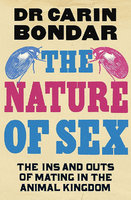New, Quality Gift Books - 50-90% off - over 2500 titles
Your basket is empty.
Categories Lucky Dip Clearance CONSPIRING WITH THE ENEMY:
CONSPIRING WITH THE ENEMY:
Book number: 93907
Product format: Paperback
In stock
Bibliophile price
£2.00
Published price
£30
Customers who bought this product also bought
|
NATURE OF SEX: Ins & Outs of Mating in The Animal Kingdom
Book number: 94485
Product format: Hardback
Bibliophile price
£5.00
Published price
£20
|
TUDOR & JACOBEAN PORTRAITS: National Portrait Gallery
Book number: 95433
Product format: Paperback
Bibliophile price
£5.00
Published price
£12.95
|
CLASSIC MILITARY AIRCRAFT COLOURING BOOK
Book number: 95343
Product format: Paperback
Bibliophile price
£4.00
Published price
£5.99
|
|
QUEST FOR THE LOST ROMAN LEGIONS
Book number: 94956
Product format: Paperback
Bibliophile price
£7.00
Published price
$22.95
|
TUDOR MURDER FILES
Book number: 95138
Product format: Paperback
Bibliophile price
£6.00
Published price
£14.99
|
RED ARMY ARMOUR IN COMBAT
Book number: 95124
Product format: Paperback
Bibliophile price
£4.50
Published price
£9.99
|
Browse these categories as well: Lucky Dip Clearance, War & Militaria







